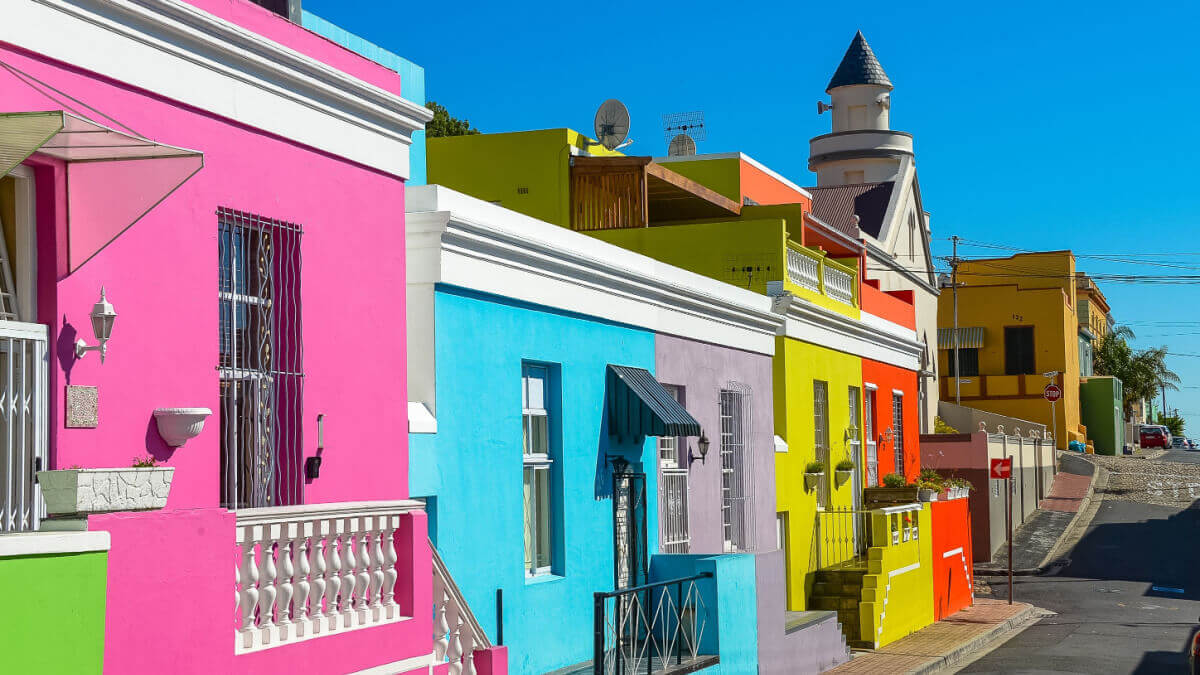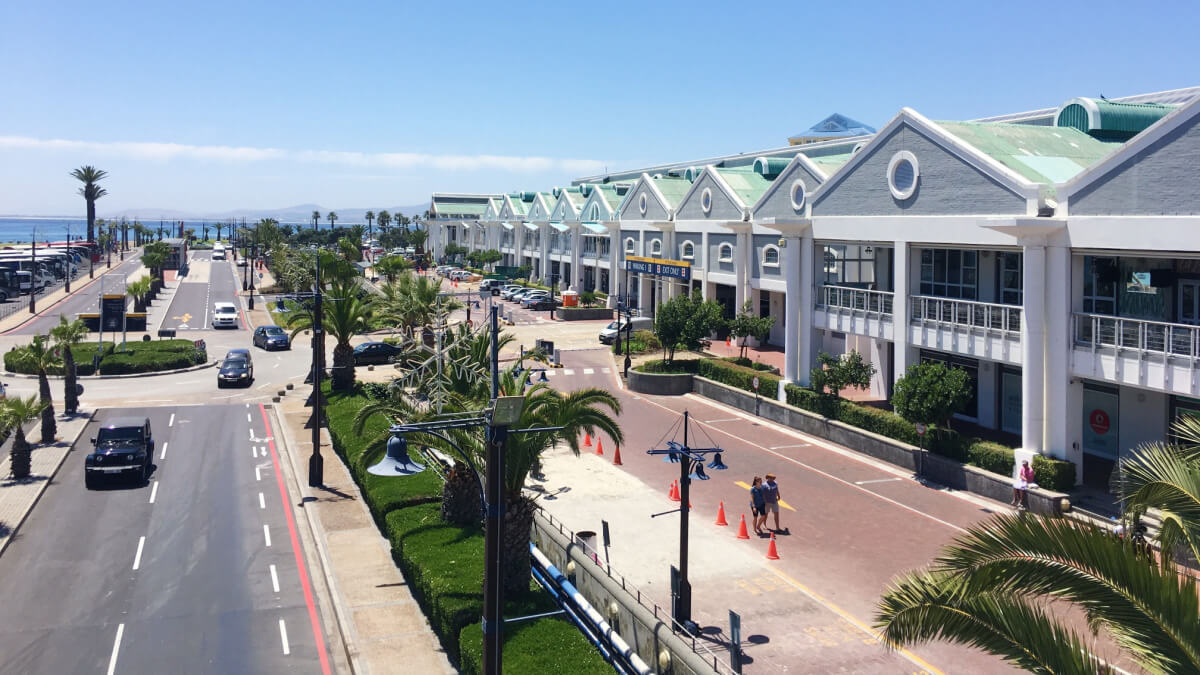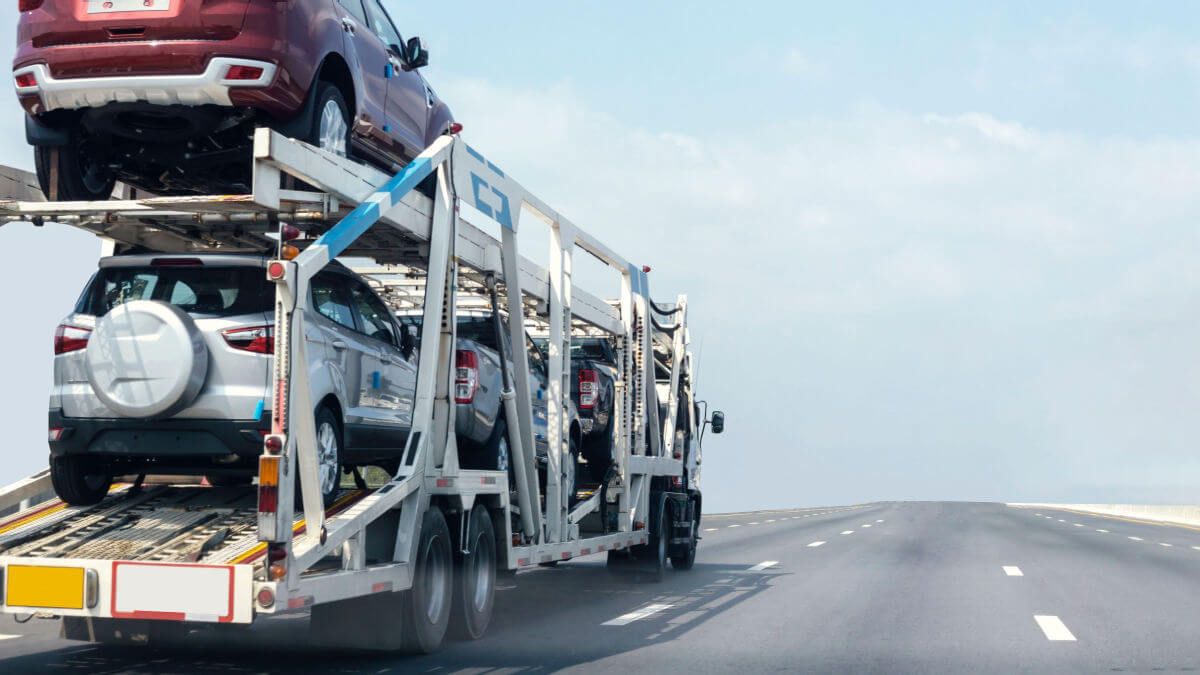Importing a car from South Africa to the UK: a how-to guide
Your essential guide to importing a car from South Africa to the UK, covering the costs, documents and procedures to follow.

Thinking of moving to South Africa from the UK? You’ll have a long list of tasks on your to-do list, but finding somewhere to live will be a priority.
We’re here to help, with our complete guide to buying property in South Africa. This is a must-read for UK expats making the move abroad, along with anyone wanting to buy a holiday home or investment property in SA.
We’ll look at what to expect from the buying process, fees, taxes, legal requirements, the latest info on South Africa property prices and much more.
We’ll also show you a cost-saving way to transfer funds between the UK and South Africa using the money services provider Wise. You can send secure international payments with Wise, for low fees and mid-market exchange rates. It could save you a bundle compared to using a bank.
Please see the Terms of Use for your region or visit Wise fees & pricing for the most up-to-date information on pricing and fees.
According to some property experts, it’s something of a buyer's market in South Africa.
Property prices are growing at a lower rate than inflation, and interest rates are staying relatively low. This is despite recent increases in the cost of lending, although these hikes are expected to end soon.¹
Whether or not it’s the right time to buy in South Africa may all depend on which area of the country you’re interested in. Some cities and regions are seeing more property market activity, especially in remote and scenic locations where demand for property is high.¹
Yes, foreign nationals can buy property in South Africa. However, you’ll need to meet the visa requirements to live and work there, along with having the required documents.²
It’s also possible to buy an investment property in South Africa even if you live in the UK or another country. You’ll need to comply with the legal requirements for foreign investment set out by the South African government.²
This may require applying for relevant approvals and permits from the South African Reserve Bank. To help you navigate the process, it could be a good idea to get legal advice from an expert.
Unlike some countries, South Africa doesn’t have an investment visa which allows you to get a residency permit by investing in property.
If you’re interested in routes to residency, there’s full information on all South African visa types here on the Department for Home Affairs website.
Nearly ready to start house hunting? Before you do, it can be useful to know a little about how the process of buying property works in South Africa. Here’s an overview of the steps involved:³
1. Search for a property and arrange viewings
We’ll give you some tips on estate agents and online property websites later in this guide.
2. Make an offer
You’ll need to submit this in writing to the estate agent managing the sale of the property.
3. Sign the sale agreement
If your offer is accepted, you and the seller will both sign the sale agreement. This agreement usually contains a _voetstoots _clause, which essentially means you’re agreeing to buy the property ‘as seen’, unless any major structural defects come to light. At this stage, you’ll also pay the deposit.
4. Get a survey (optional)
It’s not common for structural surveys to be carried out ahead of property purchases in South Africa, but you might still want to have one done for your own peace of mind. You can find a directory of regulated property surveyors in South Africa at the Royal Institute of Chartered Surveyors.
5. Get your finances sorted
With the paperwork sorted, you’ll need to contact your bank or lender to finalise your mortgage offer.
6. The conveyancing work is completed
Unlike in other countries, you don’t need to appoint your own conveyancer or solicitor when buying a home in South Africa. The seller does this, appointing a solicitor to transfer the title of the home to your name. The bank will also hire its own solicitor (called a bond attorney) to register the mortgage in your name.
7. Completion
Once the title transfer is complete, all that’s left to do is pay the rest of the balance and receive the keys.
Yes, as there are no restrictions on getting a mortgage in South Africa as a UK citizen or other foreign national.
However, if you’re not living in South Africa, you will need to have your application approved by the South African Reserve Bank.
Useful to know - in SA, mortgages are commonly known as ‘bonds’ and mortgage lenders as ‘originators’.⁴
As well as the purchase price, you also need to factor in the relevant fees and taxes for buying property in South Africa. This is important, as it can affect your overall budget.
The first thing to know about are legal fees. There are two main charges - the bond registration fee and the transfer attorney fee. Both of these are charged on a sliding scale according to the value of the property.
Here’s an example to give you an idea of the total costs involved. For a property costing 1,000,000 ZAR where you have a 50% mortgage, you’d pay:⁵
There are also taxes to pay. Transfer duty is payable on all property purchases over 1,000,000 ZAR. The rates are then applied depending on the purchase price, as follows:³
| Property price | Transfer duty rate |
|---|---|
| Up to 1,000,000 ZAR | 0% |
| 1,000,000 to 1,375,000 ZAR | 3% |
| 1,375,000 to 1,925,000 ZAR | 11,250 ZAR + 6% |
| 1,925,000 to 2,475,000 ZAR | 44,250 ZAR + 8% |
| 2,475,000 to 11,000,000 ZAR | 88,250 ZAR + 11% |
| 11,000,000+ ZAR | 1,026,000 ZAR + 13% |
It’s important to note that the rates given above only apply to the value above the price bracket. For example, for properties sold for between 1,000,000 to 1,375,000 ZAR, you’ll only pay 3% on the value above 1,000,000 ZAR.
| 📚 Read more: The cost of living in South Africa |
|---|
Generally speaking, property in South Africa is much cheaper than in the UK. In fact, it’s around 83% cheaper per square metre (based on buying an apartment) both in and outside of major city centres.⁶
The average property price in South Africa is 1,426,656 ZAR (roughly £61,400).⁷
Where you buy will also affect the property price, based on what’s happening in the local market. Here’s a guide to what you can expect to pay per square metre in some of South Africa’s major cities:⁸
| City | Average apartment price per sq.m - city centre | Average apartment price per sq.m - outside city |
|---|---|---|
| Cape Town | 35,888 ZAR | 24,283 ZAR |
| Johannesburg | 14,553 ZAR | 12,119 ZAR |
| Port Elizabeth | 14,066 ZAR | 11,424 ZAR |
| Durban | 13,357 ZAR | 15,195 ZAR |
| Pretoria | 7,792 ZAR | 10,204 ZAR |
Remember though that property prices will also vary depending on the type of property.
When it comes to sending over money for your deposit and the final balance, Wise could be the ideal solution. It’s safe, secure and fast, even for sending large transfers.
What’s more, you’ll get mid-market exchange rates and low fees when you send money with Wise. This could save you a small fortune compared to using your bank.
Learn more about sending money with Wise 💰
Please see the Terms of Use for your region or visit Wise fees & pricing for the most up-to-date information on pricing and fees.
As you can see from our table above, Pretoria is the cheapest place to buy property in South Africa⁸ - at least in terms of the major cities.
Another popular place for first-time buyers looking for affordable property is Gauteng.⁹

There are a few ways you can find property to buy in South Africa. You can use a real estate agency, look online on property websites - or use a combination of both.
You don’t have to use an estate agent to find a property to buy, but it can be helpful. This is especially the case if you’ve not yet moved over to South Africa. An agency will be familiar with the local property market and can help you find suitable properties.
If you’re looking for an agent, make sure that they’re registered with Property Practitioners Regulatory Authority (PPRA).³ This is how you’ll know they’re legit.
Some of the largest national estate agents in South Africa include ERA, Pam Golding and Rawson. You might also want to consider UK-based agents who specialise in the South African property market.
You can also search for property in South Africa online, from the comfort of your home.
Here are some of the most popular property websites for South Africa real estate:³
There are a few things you should be aware of when buying a home in South Africa:
The right property for you will all depend on where you want to live, the type of home and of course, the price.
If you’re not already living there, it’s worth making a trip to check out the local area and view properties. Pay attention to local transport links and amenities, and try to get a feel for the area.
It’s crucial to do as much research as possible before committing to purchase a property, making sure it’s in good condition and that there are no major issues.
As we’ve mentioned, a structural survey could give you valuable information on any potential problems with the property.
If you have any concerns at all, it could be an expense well worth paying.
As you look forward to getting the keys to your new home, you’ll have a final few tasks to check off your list.
You’ll need to get suitable insurance before you can legally own the property. Buildings insurance will be mandatory, although you can also take out optional contents cover. You may also want to consider mortgage protection insurance too.
Got your completion date? Once this is confirmed, you can start making arrangements to move in. It makes sense to get some essentials set up in advance, such as utilities like heating, power and water.
Useful to know - there’s only one electricity supplier in South Africa, Eskom, and water will come from your local municipal water board. But you can shop around for the best deals from a range of internet providers and gas companies.³
Bought a property with no central heating, an old heating system or no insulation? One of your first priorities might be to carry out energy efficiency renovations. This can make your home more comfortable (especially in the case of extreme weather) and lower your heating bills.
And there you have it - your complete guide to buying property in South Africa as a Brit. We’ve covered it all, from the buying process to fees, taxes and property prices.
After reading this, you should have a better grip on how it all works, and be ready to start house hunting. Good luck!
And, if you need an easy, low-cost way to handle your finances in both the UK and South Africa, consider checking out the Wise account.
Please see the Terms of Use for your region or visit Wise fees & pricing for the most up-to-date information on pricing and fees.
Sources used for this article:
Sources checked on 12-Oct-2023.
*Please see terms of use and product availability for your region or visit Wise fees and pricing for the most up to date pricing and fee information.
This publication is provided for general information purposes and does not constitute legal, tax or other professional advice from Wise Payments Limited or its subsidiaries and its affiliates, and it is not intended as a substitute for obtaining advice from a financial advisor or any other professional.
We make no representations, warranties or guarantees, whether expressed or implied, that the content in the publication is accurate, complete or up to date.

Your essential guide to importing a car from South Africa to the UK, covering the costs, documents and procedures to follow.

The costs in South Africa depend on the region and the city you’re moving to from the UK. Learn about average living prices when moving to South Africa.

South Africa is the second largest economy on the continent, and responsible for drawing in some 24% of all of Africa’s GDP. Despite challenges, the economy...